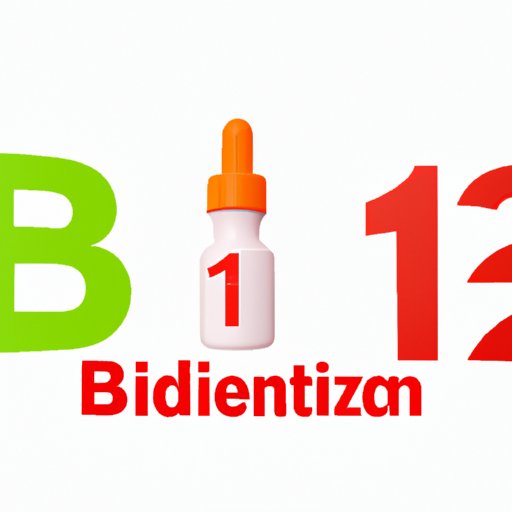
The Ultimate Guide to Taking Vitamin B12
Vitamin B12 is an essential nutrient that the human body needs to survive. It plays a crucial role in many of our body’s functions, including blood cell formation, brain function, and DNA synthesis. However, many people don’t consume enough B12 in their diet or have difficulty absorbing it, leading to deficiencies that can cause serious health problems. In this article, we’ll explore everything you need to know about taking vitamin B12, including its benefits, different forms of supplementation, dietary sources, and signs of deficiency.
The benefits of vitamin B12 and how to properly supplement it – a guide for beginners
B12 is an essential nutrient for overall health and well-being, and its benefits are many. It is necessary for the proper functioning of the brain, nervous system, and cardiovascular system, and it helps in the production of red blood cells. B12 is also critical for DNA synthesis and regulation, and it can play a role in DNA repair.
There are three main ways to supplement B12: injections, oral supplements, and fortified foods. Each method has its advantages and disadvantages, depending on your needs. If you have a severe deficiency, injections may be the best way to correct it quickly. Oral supplements are the most convenient option, but some people may not absorb them as well. Fortified foods are a good option for vegans or vegetarians who may not get enough B12 from their diets.
10 foods rich in vitamin B12 and how to incorporate them into your diet
If you want to increase your B12 intake through diet, there are plenty of options available. Meat, dairy products, and fish are some of the richest sources of B12. Some of the top options include beef liver, clams, salmon, eggs, and yogurt. If you’re vegan or vegetarian, plant-based milk, fortified cereals, and nutritional yeast products may be good sources of B12.
To incorporate these foods into your diet, try making dishes like salmon and quinoa bowls, omelets with spinach and cheese, or a Greek yogurt parfait with fresh fruit and nut granola. Keep in mind that it’s important to balance your B12 intake with other nutrients, like iron and folate, for the best results.
Common signs of vitamin B12 deficiency and how to increase your intake
B12 deficiency can cause serious health problems, including anemia, nerve damage, and cognitive impairment. Some common signs of deficiency include fatigue, weakness, lightheadedness, confusion, and depression. If you suspect you may be deficient, it’s important to see a doctor right away. In some cases, you may need to receive injections or high-dose supplements to correct the deficiency.
If you’re looking to increase your intake, consider adding more B12-rich foods to your diet or taking an oral supplement. It’s important to follow the recommended dosage instructions, as taking too much B12 can cause side effects, including headache, dizziness, and gastrointestinal upset.
Everything you need to know about B12 shots and how to prepare for them
B12 injections are a popular way to supplement this essential nutrient and are typically given to people with severe deficiencies or people who have trouble absorbing B12. There are different types of B12 injections available, and their effectiveness and cost can vary. Before beginning this form of supplementation, it’s essential to speak with a healthcare professional about the best approach for your individual needs.
Preparing for B12 shots involves several steps, including discussing your medical history and current medications with your doctor, setting up an appointment, and learning how to properly prepare and administer the injections at home. It’s crucial to follow the correct protocol to ensure safety and efficacy.
The best practices for taking vitamin B12 for athletes and active individuals
B12 is known to play a role in energy levels and endurance, making it a popular supplement among athletes and active individuals. To optimize your supplementation, it’s important to consider both your dosage and timing. Some athletes may require higher doses of B12 than the average person, and timing can also impact absorption and efficacy. Hydration and nutrition play fundamental roles in athletic performance, so it’s crucial to prioritize your overall health when approaching B12 supplementation.
Conclusion
Vitamin B12 is a crucial nutrient that plays an essential role in maintaining overall health and well-being. By understanding the benefits of B12, dietary sources of the nutrient, and different methods of supplementation, you can ensure that you’re getting enough of this vital nutrient. Whether you’re looking to supplement through injections, oral supplements, or fortified foods, it’s essential to speak with your healthcare provider to determine the optimal approach for your individual needs.





